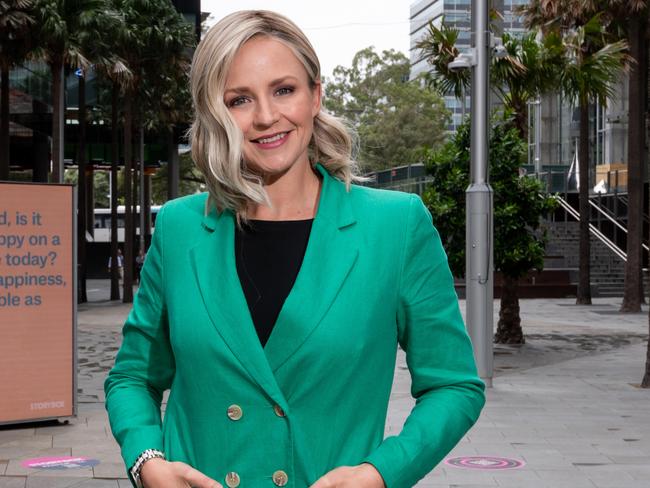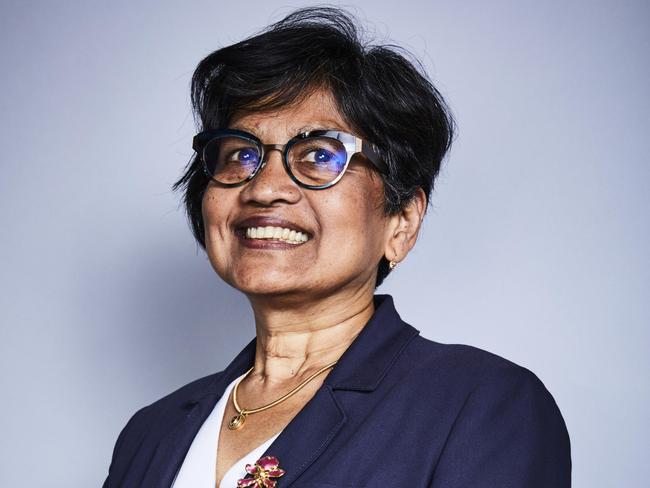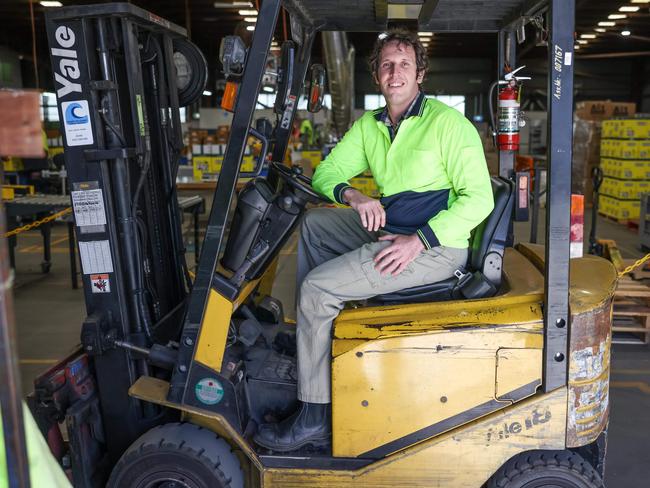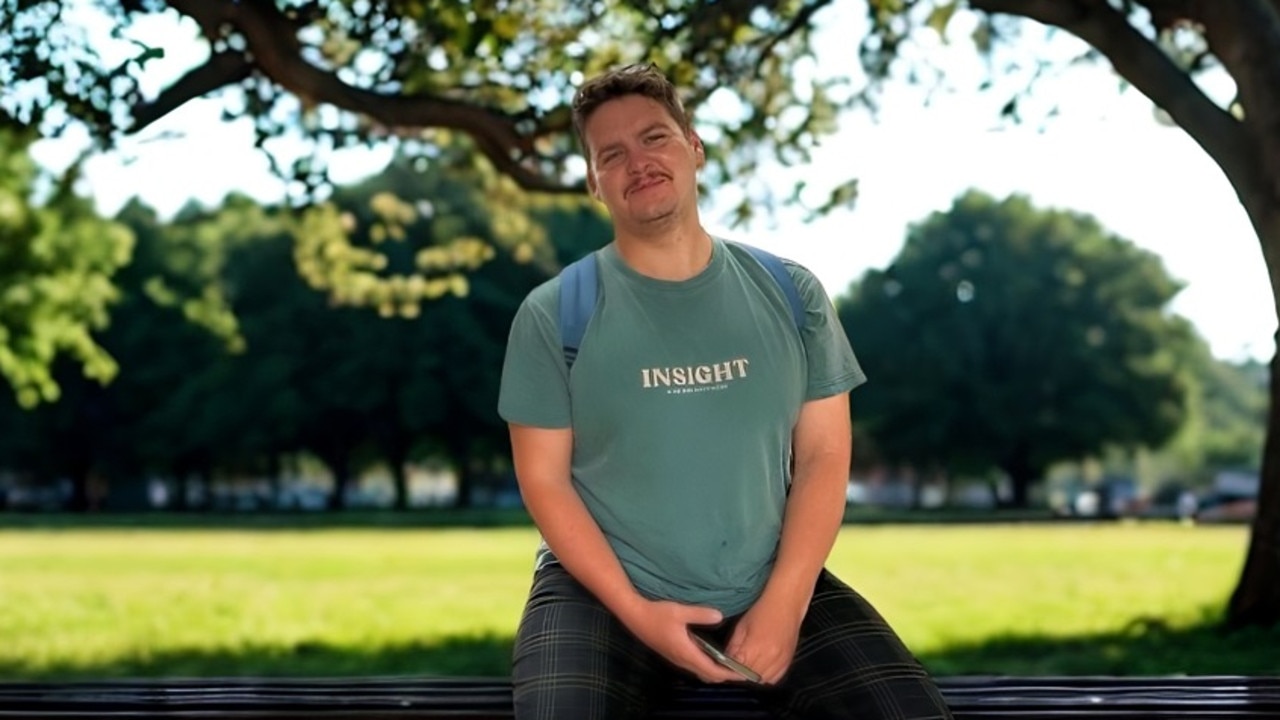How jobseekers with a disability can give themselves a career edge
Experts share their best advice for navigating the unique challenges of finding work while living with a disability.
Careers
Don't miss out on the headlines from Careers. Followed categories will be added to My News.
While many people living with disability are able to work unhindered, some face unique barriers that are not experienced by other jobseekers.
Almost half of working-age people with a disability (47 per cent) are not employed nor looking for work, compared to 16 per cent of those without a disability, a 2020 report from Australian Institute of Health and Welfare reveals.
People with a disability are also more likely to be looking for work but unable to find it (10 per cent compared to 4.6 per cent), and more likely to be employed but not getting as many hours as they would like (10 per cent compared to 6.9 per cent).
While it is the responsibility of employers to make workplaces more inclusive, jobseekers can also do some things to give themselves the best chance of career success.
RESEARCH EMPLOYERS
Disability Employment Services provider WISE Employment head of employer engagement Souzan Asfour encourages jobseekers to look at company websites.
“Are there any mission or vision statements?” she says. “Look for wording such as ‘we are an inclusive employer’ that flags they want to broaden horizons in terms of diversity. If there are photos, look at the cohort of people existing in the organisation.”

Maria Sitaramayya, human resources vice-president for Asia Pacific at IT company Unisys – which received a perfect score in the global 2021 Disability Equality Index – says jobseekers should also check what others say about the organisation, to ensure policies are not all talk.
“Look on their social channels for posts and comments by employees to get a sense of the culture,” she says.
“Ask recruiters or hiring managers where the company stands on these issues and have them give real examples of this in action.” Sitaramayya says to check if the organisation has a senior leader dedicated to diversity and inclusion, and if any corporate social responsibility efforts are related to disability initiatives.
Advocacy group Western Sydney Women founding director Amanda Rose says businesses should be clearer about these things. “Employers need to communicate better the type of diversity and inclusion polices they have so that people know ‘That is where I will belong and I will feel comfortable there’,” she says.
BE YOURSELF
David Brady, the chief executive of Hear for You – which mentors teenagers with hearing loss – says it is never a good idea to gloss over a disability that may affect the way a jobseeker does their job.
“They will find out, so just be yourself,” he says.
“I know it’s hard but at the end of the day, you are spending a lot of your waking moments with those people.
“There is nothing worse than being in a job and you have glossed over who you are and find people can’t get along with you, or you have made it so difficult for yourself that it’s an uncomfortable space to be in.”

POINT OUT THE BENEFITS
Brady encourages asking in a job interview: “What is your diversity and inclusion policy, and how is it going?”
“If they say, ‘We have Indigenous Australians and women and LGBTQIA employees’, that’s a perfect opportunity to ask, ‘Is there anyone with declared disabilities in the team?’,” he says. “If they say ‘no’, say, ‘I am your solution’.
“It has never been a better time for employers who are looking to meet the diversity and inclusion push by the Australian community.”
Ability Works Australia chief executive Sue Boyce says employers are often cautious about hiring people with a disability because of misconceptions. She recommends directly asking in a job interview what issues they expect, then busting the myths.
“You could say, ‘Contrary to the common perception of increased occupational health and safety risk for people with disability, a national study of employers in Australia found that workers with disability have a lower number of OHS incidents’,” she says.
Boyce says studies show, on average, people with a disability take fewer days off, take less sick leave and have higher retention rates.
“You can discuss how evidence shows that people with disability build strong relationships with customers and boost staff morale and loyalty,” she says.
“They also enhance the company image amongst staff, customers, and the community.”
Boyce also recommends mentioning the Jobactive funding available to employers of people with disability.

FIND GROUPS THAT CAN HELP
Forklift driver Jamie Burchardt is one of 70 Endeavour Foundation employees set to benefit from the disability service provider’s new partnership with earthmoving equipment manufacturer Komatsu Australia.
The three-year agreement will secure ongoing employment for people living with disability and reduce as much as 10 tonnes of plastic waste annually.
Employees will clean and re-pack tens of thousands of yellow plastic canisters containing Komatsu’s engine oil testing kits, putting them back into circulation across the eastern seaboard.
“Endeavour Foundation helped me get my forklift licence three years ago,” Burchardt says.
“Next, I want to start learning how to use the high-reach forklift so I can do even more jobs.”
GET HELP EARLY
AtWork Australia’s School2atWork program helps students living with disability, injury or a health condition to transition into work or further education.
General manager for Disability Employment Services (DES) Steve Carder says it’s important to have the best transition possible from school to employment.
“This is particularly important for school leavers who are uncertain about what future employment opportunities are available and are right for them,“ he says.
In the past 12 months, more than 600 school leavers have been given opportunities in sectors such as retail, hospitality, construction, administration and building trades.
More Coverage
Originally published as How jobseekers with a disability can give themselves a career edge




